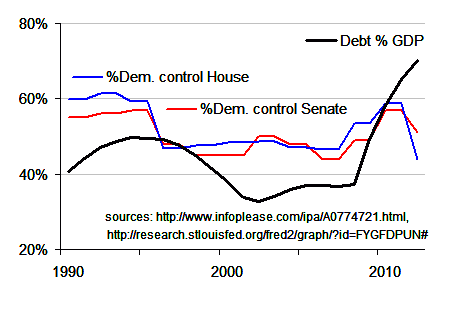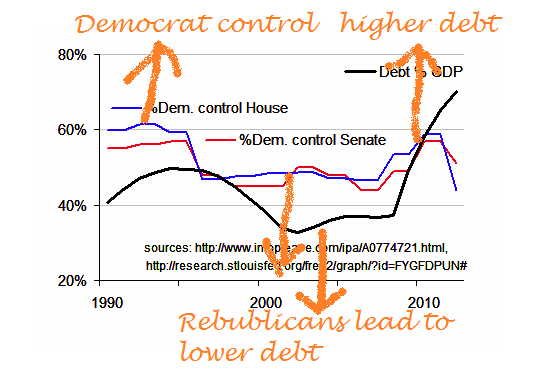GreatDay
Wasn't it?
- Aug 21, 2012
- 436
- 37
- 16
- Thread starter
- #41
We had a Republican President who added $4.9 trillion to the debt in 8 years.
And that was way too much debt.
So then we had a Democrat President who added $5.4 trillion to the debt in 3.5 years.
And liberals think that's an improvement that deserves a second term.
Who is this "Republican President" you speak of? I saw the GOP convention it was as if it were just born, no Bush, no McCain, no Palin the Ds had Clinton, Kerry they don't seem to be afraid to mention that they have been in office before.
Reagan/Bush quad-tripled the debt, then Bush double it, we were losing 700,000 jobs a month when Obama came in, (he followed a Republican) when Bush came in we had balanced budget and was creating about 250,000 jobs a month, I know actually looking at reality is counter to conservatives core priceless, but you did ask.



